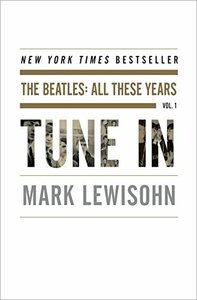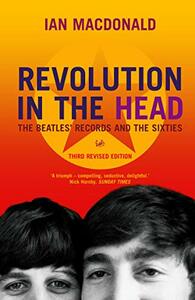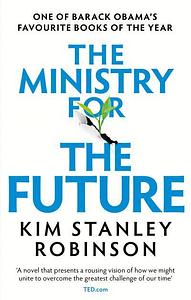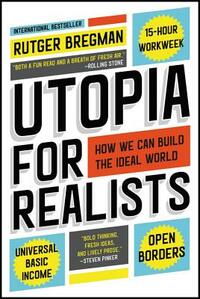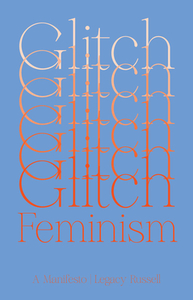Take a photo of a barcode or cover
pascalthehoff's reviews
404 reviews
In the literary and academic genre that "Beatles writing" has become, this Women's History of the Beatles is – alongside Martin King's Men, Masculinity and the Beatles – an absolutely exciting foray into examining the Beatles through a 2010s feminist and gender studies lens.
More than, arguably, any other of the big 1960s rock bands, the Beatles have managed to carve their own path in gender(ed) performance and interaction that differed wildly from the hyper-masculine, male-chauvinist tropes that became only more prevalent with each year from Elvis to the 1980s. Today, finally, there is literature that delves deeper into this exciting aspect of the Beatles' history that writers from the 90s and 2000s merely dipped their toes in.
It's almost a shame that this book in particular is seemingly marketed as somewhat of an academic publication when this could have easily been a popular read for Beatles fans without any textual alterations. That's how fun it was to read this and how easy it was to digest. Yet, the book is brimming with wonderful – often first-hand – insights into how the Beatles inspired women from the different generations of listeners. And also, of course, about how the Beatles themselves have been inspired or supported by women throughout their lives and artistic careers.
A Women's History of the Beatles challenges expectations in the collective consciousness of Beatles fandom that have been deeply ingrained throughout more than half a century. Like how we perceive and value female fandom or some people might still hold onto certain narratives of wives destroying bands. But even more interesting is how the book examines occurrences and phenomena on a deeper level that often goes overlooked. Yet, many of these individual stories – like the ones of young female fans leaving Liverpool for the first time on their own, pursuing fan club duties – still have influenced the big picture of women's liberation and female empowerment. In a way, girls' and women's excitement for the Beatles, especially during the early days of the band's career, was like some sort of organic activism.
There is so much more I could praise this book for right now, but I'll just go with: If you have any interest in how 1960s popular culture or popular music culture in general has influenced feminism you should not miss out on this, whether you are a Beatles fan or not.
More than, arguably, any other of the big 1960s rock bands, the Beatles have managed to carve their own path in gender(ed) performance and interaction that differed wildly from the hyper-masculine, male-chauvinist tropes that became only more prevalent with each year from Elvis to the 1980s. Today, finally, there is literature that delves deeper into this exciting aspect of the Beatles' history that writers from the 90s and 2000s merely dipped their toes in.
It's almost a shame that this book in particular is seemingly marketed as somewhat of an academic publication when this could have easily been a popular read for Beatles fans without any textual alterations. That's how fun it was to read this and how easy it was to digest. Yet, the book is brimming with wonderful – often first-hand – insights into how the Beatles inspired women from the different generations of listeners. And also, of course, about how the Beatles themselves have been inspired or supported by women throughout their lives and artistic careers.
A Women's History of the Beatles challenges expectations in the collective consciousness of Beatles fandom that have been deeply ingrained throughout more than half a century. Like how we perceive and value female fandom or some people might still hold onto certain narratives of wives destroying bands. But even more interesting is how the book examines occurrences and phenomena on a deeper level that often goes overlooked. Yet, many of these individual stories – like the ones of young female fans leaving Liverpool for the first time on their own, pursuing fan club duties – still have influenced the big picture of women's liberation and female empowerment. In a way, girls' and women's excitement for the Beatles, especially during the early days of the band's career, was like some sort of organic activism.
There is so much more I could praise this book for right now, but I'll just go with: If you have any interest in how 1960s popular culture or popular music culture in general has influenced feminism you should not miss out on this, whether you are a Beatles fan or not.
When I realized – after a great opening that set the historical and cultural context –that this was just another song-by-song analytical listicle, I almost decided to quit the book. However, this book, at times, goes surprisingly deep into what specific, under-discussed songs like Revolution 9, meant at their time and still mean today.
At times, the author is a bit too confident in his hot takes on the musical quality of Beatles songs, but if that is the price to pay for making me reflect on beloved evergreens, I guess I'll take it. Why did it take my half of my life to acknowledge that I'm actually right for thinking that Let it Be is actually a pretty mediocre song? (No need to dunk on charming, naive gems like It's Only Love, though. No matter how half-assed the background of recording and writing was.)
At times, the author is a bit too confident in his hot takes on the musical quality of Beatles songs, but if that is the price to pay for making me reflect on beloved evergreens, I guess I'll take it. Why did it take my half of my life to acknowledge that I'm actually right for thinking that Let it Be is actually a pretty mediocre song? (No need to dunk on charming, naive gems like It's Only Love, though. No matter how half-assed the background of recording and writing was.)
Ein so deprimierender, nüchterner Abriss des neoliberalen Status quo, dass ich das Buch im Anschluss gerne einem FDPler geschenkt hätte, um zu schauen, welche Lösungsansätze er vorschlägt – die angemessene Unterhaltung nach 240 Seiten Weltschmerz.
This is one of the very few contemporary books that everyone should have read or at least given a fair shot. So why the reservation, why the 4/5 and not an outright 100% end-to-end recommendationt?
For starters, what places the novel in a favorable spot is the severe lack of mainstream-ish fiction on climate change. The very nature of the topic renders it unwieldy for fiction: Since climate change is a collective problem and its solutions need to be collective efforts, there can't be individual hero characters that shine. All plausible and believable villains must be faceless and too manifold to grasp. Progress (in any direction) is slow, rarely fast-paced and exciting. What Kim Stanley Robinson creates on that basis is, in the first few chapters alone, more than admirable and should be enough to sway even the most dispassionate reader towards some degree of climate activism.
At the same time, there are #literaryqualities about this book that make it stand out from your everyday science fiction novel. However, it's exactly these more sophisticated elements that inflate the novel more than would be necessary. Especially towards the end, there is a hefty chunk of pages that engages in forced attempts to paint emotional character arcs. And that is not what I came here for or what the novel builds up for most of its chapters.
I love that Ministry for the Future is not all doom and gloom. It's cautious optimisim is what makes it bearable in the first place. At times, it feels like the novel tries to hide its rather idealistic solutions in overly detailed explanations. At other times, though, this willingness to go into detail is what makes the novel so interesting. However, there is a limit for how much I can suspend my disbelief when it comes to the coordinated behaviour of the entire planet's population.
That being said, these "flaws" are part of what makes Ministry for the Future such a great gateway drug to understanding the real implications of climate change as well as the importance of climate activism, green politics and all that is connected with it - including the consideration of violent revolution and eco-terrorism as a valid solution.
Despite its very maximalist approach, every few pages, Ministry for the Future makes you lean back and take a breath filled with existential dread. Some of the theses and individual sentences this novel flings at you are just sizzling hot. Beneath that are the lingeling, yet towering epiphanies that make you realize, for example, that - even in a best-case scenario - WE who are reading this might not even see the near future this novel takes place in. With a long-term survival rate of roundabout 33% once we hit the 3°C threshold... Well, that's just how reality MIGHT turn out and ignoring that possibility is a short-term solution at best.
For starters, what places the novel in a favorable spot is the severe lack of mainstream-ish fiction on climate change. The very nature of the topic renders it unwieldy for fiction: Since climate change is a collective problem and its solutions need to be collective efforts, there can't be individual hero characters that shine. All plausible and believable villains must be faceless and too manifold to grasp. Progress (in any direction) is slow, rarely fast-paced and exciting. What Kim Stanley Robinson creates on that basis is, in the first few chapters alone, more than admirable and should be enough to sway even the most dispassionate reader towards some degree of climate activism.
At the same time, there are #literaryqualities about this book that make it stand out from your everyday science fiction novel. However, it's exactly these more sophisticated elements that inflate the novel more than would be necessary. Especially towards the end, there is a hefty chunk of pages that engages in forced attempts to paint emotional character arcs. And that is not what I came here for or what the novel builds up for most of its chapters.
I love that Ministry for the Future is not all doom and gloom. It's cautious optimisim is what makes it bearable in the first place. At times, it feels like the novel tries to hide its rather idealistic solutions in overly detailed explanations. At other times, though, this willingness to go into detail is what makes the novel so interesting. However, there is a limit for how much I can suspend my disbelief when it comes to the coordinated behaviour of the entire planet's population.
That being said, these "flaws" are part of what makes Ministry for the Future such a great gateway drug to understanding the real implications of climate change as well as the importance of climate activism, green politics and all that is connected with it - including the consideration of violent revolution and eco-terrorism as a valid solution.
Despite its very maximalist approach, every few pages, Ministry for the Future makes you lean back and take a breath filled with existential dread. Some of the theses and individual sentences this novel flings at you are just sizzling hot. Beneath that are the lingeling, yet towering epiphanies that make you realize, for example, that - even in a best-case scenario - WE who are reading this might not even see the near future this novel takes place in. With a long-term survival rate of roundabout 33% once we hit the 3°C threshold... Well, that's just how reality MIGHT turn out and ignoring that possibility is a short-term solution at best.
Was man alles tun muss, um dem Corporate Grind ein Schnippchen zu schlagen...
Frau Shibata behauptet als Lifehack gegen Überstunden und sexistische Hiwi-Aufgaben spontan, sie sei schwanger. Ab sofort geht es pünktlich nach Hause und männliche Kollegen behandeln sie mit einem Mindestmaß an Respekt.
Wer nun sagt: "Ah ja, die stramme japanische Arbeitskultur, kein Wunder..." Völliger Quatsch! Der Roman würde ebenso gut im Saarland oder Oer-Erkenschwick funktionieren. Vielleicht würden mehr Frauen weltweit spontane Schwangerschaften vortäuschen, gäbe es nicht so viele Männer, die – wie in diesem Roman – aufdringliche Fragen stellen und deren Pranken um den prallen Bauch schweben. Doch ist der Roman nicht in Schwarz-Weiß-Denken gefangen und verleiht sogar dem nervigsten männlichen Charakter eine glaubwürdige menschliche Motivation für sein Verhalten. Es wird immerhin zum glaubwürdigen Versehen.
Durch ihre Lüge genießt Frau Shibata die Vorteile einer Schwangerschaft ohne viele der etlichen Nachteile. Nicht nur auf der Arbeit und in der Bahn behandeln Leute sie mit Empathie und Rücksicht; sie knüpft außerdem tiefe Verbindungen mit einer Community schwangerer Mütter. Eine angenehm warme Art von Freundschaft, über die zumindest ich als Mann mir vor diesem Roman noch nie so viele Gedanken gemacht habe. Und das, obwohl ich ähnliche Geschichten doch eigentlich von meiner eigenen Mutter kenne. Auf der anderen Seite vermittelt der Roman eindrücklich das berechtigte Misstrauen gegenüber Nichtschwangeren. Ja, sogar nichtschwangeren Frauen.
Die Geschichte lebt von ihrer unterschwelligen Spannung: Die Protagonistin verstrickt sich immer tiefer in ihre Lüge, entscheidet sich aber gleichzeitig dazu, das Spiel fortwährend weiterzutreiben und sogar zuzuspitzen.
Was beim Lesen unangenehm ist, bildet zugleich den Kern der Erzählung: Frau Shibata hat keine Gewissensbisse. Sie schuldet ihrer Firma nichts – genau so wenig wie ihren Kollegen, die ihren Kaffee nun selbst zubereiten müssen. Der Roman zeigt damit: Jede Person muss ihren eigenen Weg finden, sich mit dem endlosen Hamsterrad der Lohnarbeit zu arrangieren. "Geniale Ideen" wie die von Frau Shibata befürwortet der Roman – und wenn sie nur dazu dienen, das Büro tatsächlich um die Zeit zu verlassen, die im Arbeitsvertrag steht.
Die unbeschwerte Tonalität und der geradlinige Schreibstil unterstreichen die Nonchalance, mit der Frau Shibata sich im Leben und im Job ermächtigt. Der Titel der deutschen Übersetzung klingt zwar – wie gewohnt – selten dämlich und hat nichts mit dem Originaltitel oder dem Titel der englischen Übersetzung (Diary of a Void) zu tun. Er rahmt allerdings von Beginn an, wie genial Frau Shibatas Idee eben ist: Eine Lüge mit moralischer Hoheit.
Frau Shibata behauptet als Lifehack gegen Überstunden und sexistische Hiwi-Aufgaben spontan, sie sei schwanger. Ab sofort geht es pünktlich nach Hause und männliche Kollegen behandeln sie mit einem Mindestmaß an Respekt.
Wer nun sagt: "Ah ja, die stramme japanische Arbeitskultur, kein Wunder..." Völliger Quatsch! Der Roman würde ebenso gut im Saarland oder Oer-Erkenschwick funktionieren. Vielleicht würden mehr Frauen weltweit spontane Schwangerschaften vortäuschen, gäbe es nicht so viele Männer, die – wie in diesem Roman – aufdringliche Fragen stellen und deren Pranken um den prallen Bauch schweben. Doch ist der Roman nicht in Schwarz-Weiß-Denken gefangen und verleiht sogar dem nervigsten männlichen Charakter eine glaubwürdige menschliche Motivation für sein Verhalten. Es wird immerhin zum glaubwürdigen Versehen.
Durch ihre Lüge genießt Frau Shibata die Vorteile einer Schwangerschaft ohne viele der etlichen Nachteile. Nicht nur auf der Arbeit und in der Bahn behandeln Leute sie mit Empathie und Rücksicht; sie knüpft außerdem tiefe Verbindungen mit einer Community schwangerer Mütter. Eine angenehm warme Art von Freundschaft, über die zumindest ich als Mann mir vor diesem Roman noch nie so viele Gedanken gemacht habe. Und das, obwohl ich ähnliche Geschichten doch eigentlich von meiner eigenen Mutter kenne. Auf der anderen Seite vermittelt der Roman eindrücklich das berechtigte Misstrauen gegenüber Nichtschwangeren. Ja, sogar nichtschwangeren Frauen.
Die Geschichte lebt von ihrer unterschwelligen Spannung: Die Protagonistin verstrickt sich immer tiefer in ihre Lüge, entscheidet sich aber gleichzeitig dazu, das Spiel fortwährend weiterzutreiben und sogar zuzuspitzen.
Was beim Lesen unangenehm ist, bildet zugleich den Kern der Erzählung: Frau Shibata hat keine Gewissensbisse. Sie schuldet ihrer Firma nichts – genau so wenig wie ihren Kollegen, die ihren Kaffee nun selbst zubereiten müssen. Der Roman zeigt damit: Jede Person muss ihren eigenen Weg finden, sich mit dem endlosen Hamsterrad der Lohnarbeit zu arrangieren. "Geniale Ideen" wie die von Frau Shibata befürwortet der Roman – und wenn sie nur dazu dienen, das Büro tatsächlich um die Zeit zu verlassen, die im Arbeitsvertrag steht.
Die unbeschwerte Tonalität und der geradlinige Schreibstil unterstreichen die Nonchalance, mit der Frau Shibata sich im Leben und im Job ermächtigt. Der Titel der deutschen Übersetzung klingt zwar – wie gewohnt – selten dämlich und hat nichts mit dem Originaltitel oder dem Titel der englischen Übersetzung (Diary of a Void) zu tun. Er rahmt allerdings von Beginn an, wie genial Frau Shibatas Idee eben ist: Eine Lüge mit moralischer Hoheit.
The internet is often perceived as fertile ground for alt-right or far-right radicalization. But guess what! It goes both ways! And countercultural activism on "the other side" tends to be much more creative and profound.
The web has long become a full-fledged stage of our perceived reality, on eye-level to what we'd traditionally call "IRL" – or what the book, more accurately, calls "the AFK world". Because there is no need for distinction between web and real life. The web IS real life.
How we express ourselves on Instagram, Twitter or more obscure communities is just as real as our life at work, in school and such. The difference lies in the opportunities the virtual space gives us to "glitch", to create new ways of freely expressing ourselves, unrestrained from corporeal limitations.
I've always been a very online person and while I'm far from becoming a glitch activist, I've always used the web (often subconsciously) to deviate from my AFK personality. To a degree where my online personality might have influenced my AFK personality more than the other way round.
This book made me realize how many ways there are to express oneself through virtual self-actualization, subversion of reality and online communities. And, of course, how strong of a platform the internet is for marginalized people, given that context. This liberation through the web, this glitch, then in turn influences the AFK world – it's only natural.
At times, the information here on its own might have been easier to digest in a more standard format that's less focused on direct engagement and more on education. It veers between being really dense, theoretical and high-level and then goes into detailed examples that still don't make that strong of a case for the concept the book is trying to convey in a given chapter. As a manifest, however, as it states on the cover, this book is definitely compelling and self-confident.
The web has long become a full-fledged stage of our perceived reality, on eye-level to what we'd traditionally call "IRL" – or what the book, more accurately, calls "the AFK world". Because there is no need for distinction between web and real life. The web IS real life.
How we express ourselves on Instagram, Twitter or more obscure communities is just as real as our life at work, in school and such. The difference lies in the opportunities the virtual space gives us to "glitch", to create new ways of freely expressing ourselves, unrestrained from corporeal limitations.
I've always been a very online person and while I'm far from becoming a glitch activist, I've always used the web (often subconsciously) to deviate from my AFK personality. To a degree where my online personality might have influenced my AFK personality more than the other way round.
This book made me realize how many ways there are to express oneself through virtual self-actualization, subversion of reality and online communities. And, of course, how strong of a platform the internet is for marginalized people, given that context. This liberation through the web, this glitch, then in turn influences the AFK world – it's only natural.
At times, the information here on its own might have been easier to digest in a more standard format that's less focused on direct engagement and more on education. It veers between being really dense, theoretical and high-level and then goes into detailed examples that still don't make that strong of a case for the concept the book is trying to convey in a given chapter. As a manifest, however, as it states on the cover, this book is definitely compelling and self-confident.
Our Wives Under the Sea gets tagged as „horror“ a lot. And while I’d argue it isn’t a horror novel at all, how it uses its deep sea setting makes it eerie enough on its own.
In turn, this also means: The deep sea, as Humankind’s final unexplored frontier on earth, would have been unnerving enough by itself, without other inexplicable events distracting from what’s, in its core, a story about a perfect relationship being shattered by trauma.
Actually, the novel might have worked with any sufficiently trauma-inducing premise. For a relationship to be disrupted like that, it doesn’t require some abstract mysteries of the deep. There are all kinds of people suffering from severe trauma; and with the novel turning this very real phenomenon more abstract, there come pros and cons:
In one way, the „magical“ elements taint what is essentially a very grounded emotional narrative. However, the striking visualization of how the relationship changes, not only emotionally, but also corporally, serves as a striking metaphor for the estrangement.
Our Wives Under the Sea is amazing in how it weaves flashbacks that contextualize the characters’ history together into the main narrative without any feeling of intrusion. The dynamics between the characters are perfect for playing with their codependency in different stages of their relationship: Miri is the overthinker with lots of emotional baggage and Leah the passionate counterweight that remains more optimistic even when facing her own demise.
The characters are much more defined beyond that, of course. Just like the novel’s storytelling and its language, which are surprisingly intricate and layered, considering how effortless it all feels. Some of the images and metaphors it uses for what in lesser novels would be throwaway statements are beautiful in their liveliness. The creativity with which Our Wives Under the Sea describes experiences and character traits is truly what makes this novel so great.
In turn, this also means: The deep sea, as Humankind’s final unexplored frontier on earth, would have been unnerving enough by itself, without other inexplicable events distracting from what’s, in its core, a story about a perfect relationship being shattered by trauma.
Actually, the novel might have worked with any sufficiently trauma-inducing premise. For a relationship to be disrupted like that, it doesn’t require some abstract mysteries of the deep. There are all kinds of people suffering from severe trauma; and with the novel turning this very real phenomenon more abstract, there come pros and cons:
In one way, the „magical“ elements taint what is essentially a very grounded emotional narrative. However, the striking visualization of how the relationship changes, not only emotionally, but also corporally, serves as a striking metaphor for the estrangement.
Our Wives Under the Sea is amazing in how it weaves flashbacks that contextualize the characters’ history together into the main narrative without any feeling of intrusion. The dynamics between the characters are perfect for playing with their codependency in different stages of their relationship: Miri is the overthinker with lots of emotional baggage and Leah the passionate counterweight that remains more optimistic even when facing her own demise.
The characters are much more defined beyond that, of course. Just like the novel’s storytelling and its language, which are surprisingly intricate and layered, considering how effortless it all feels. Some of the images and metaphors it uses for what in lesser novels would be throwaway statements are beautiful in their liveliness. The creativity with which Our Wives Under the Sea describes experiences and character traits is truly what makes this novel so great.
